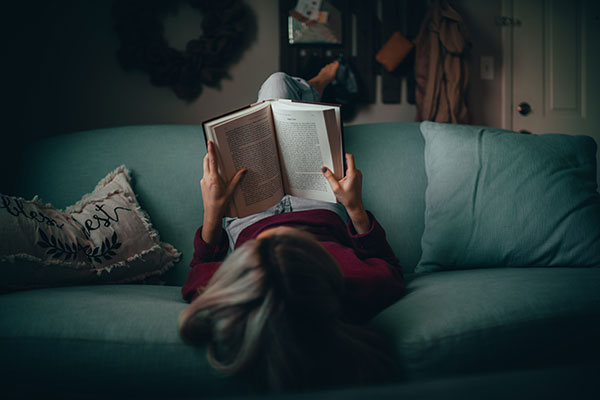We all learn through a process of mimesis, imitation. Influence plays a significant role in how we fashion ourselves and our creative outputs. That is not a bad thing, but an important and necessary part of learning. We are always learning from the stories we consume, whether we are conscious of it or not. But it is wrong to fear the influence of other writers; reading the work of others is a way of understanding the craft and helps you develop a range of technical skills and aesthetic ideas that will support the expression of your own voice. Imitating others may be just part of the process, but in the end, you will find your own voice, informed, as it inevitably will be, by the voices of others.
The more you write, the more you become aware of how others do it, and you begin to notice what works and what doesn’t work in books you read. As a developmental editor, I spend much of my time reading works-in-progress and thinking about what is required to take the manuscript to the next level. I apply my analytical skills to the task, with my ‘problem-solver’ hat firmly in place. Of course, I read for pleasure as well as for work. Whether I am starting a new manuscript or a new book, I read with curiosity and an open mind.
As I read I look out for things that surprise me, that move me, that bore me, that intrigue me. Yes, I love it when I am completely hooked and swept up by a story, but then I step back and think about why I am so absorbed. What is it about the chapter endings that makes me keep reading late into the night? Why does the dialogue feel so rich even though not much is being said? Why don’t I find this character convincing? What is it about the rhythm of the words that makes the sentences sing? Why is my attention flagging?
Engaging in a text in this way is what critical reading is all about. Rather than being ‘critical’ in terms of judging something as faulty or flawed, it is about being attentive and bringing a level of awareness into the reading experience to sharpen your focus on the craft.
You can read a favourite author, revisit a favourite book, pick up a recent release in the genre you are writing, turn to a recommended book you have been meaning to read, or find something put out by a publisher you are interested in submitting work to. Or go for an essay or short story.
You can look broadly at how the work succeeds in delivering its intent, much like a review. Or you can focus on specific elements of storytelling, such as characterisation, dialogue, voice, pacing, point of view. What exactly does the reader learn about a new character when they are first introduced? How does the writer convey setting and mood through dialogue? What is the effect of varying sentence lengths on the reading experience? How does the writer weave backstory into the opening chapters? How does the writer balance action and exposition? How does the writer pull in and out of different points of view?
You might want to focus on an aspect of your own work you are unsure about. I worked with a memoir writer who was struggling with what to put in chapter one and, more importantly, what to leave out. So she went away and read the first chapter of half a dozen memoirs noting how the writers engaged the reader and set up the story. This helped her enormously in determining how she would go about that all-important first chapter.
So critical reading is valuable in helping you understand the craft of writing, and as a problem-solving tool. There is another important benefit to critical reading that is often overlooked. To develop your work to a publishable standard, at some stage you will need to stand back from the work and see it as a whole in order to evaluate what is and isn’t working, and to diagnose whether the structure is successful. This isn’t easy, as a the overall effect of a work, the structure in particular, can be hidden by a focus on events, characters, style and other specific story elements. You need to look hard, and you need to practice looking.
Reading the works of others gives you the necessary practice to sharpen your critical reading abilities so that you can apply this type of lens to your own work and improve your draft.
As Stephen King says in On Writing (Hodder & Stoughton, 2000), ‘If you don’t have time to read, you don’t have the time (or the tools) to write. Simple as that.’
